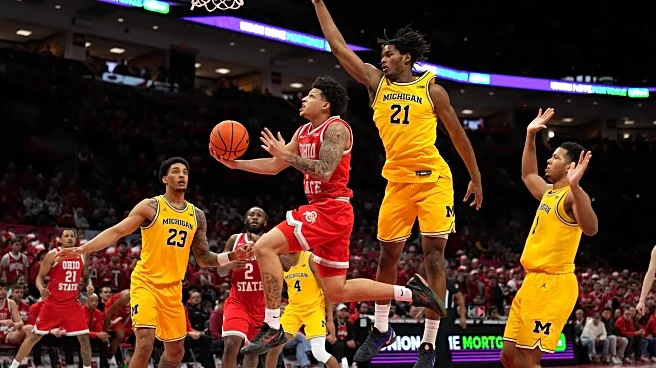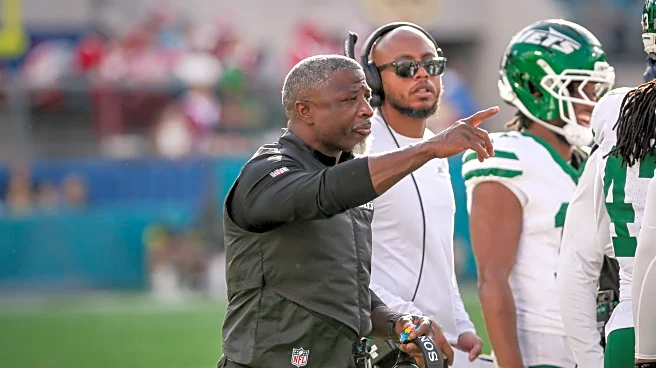What's Happening?
Cornell University has successfully negotiated a deal with the White House to restore approximately $250 million in federal funding. This agreement comes as part of the Trump administration's broader campaign
to reshape higher education in the United States. As part of the deal, Cornell will invest $30 million over three years in agricultural research and pay an additional $30 million to the U.S. government to resolve pending claims against the university. The agreement allows Cornell to maintain autonomy over its policies, hiring, admissions, and curriculum without government interference. This development marks Cornell as the fifth university and fourth Ivy League institution to reach such an agreement, following similar deals with the University of Pennsylvania, Columbia, Brown, and the University of Virginia.
Why It's Important?
The restoration of federal funding is crucial for Cornell University, which had been experiencing financial strain due to the freeze on government funds. The agreement alleviates the pressure on the university, allowing it to continue vital research projects that were previously halted, including those related to cancer, heart disease, and avian flu prevention. The deal also reflects the Trump administration's focus on dismantling diversity, equity, and inclusion programs, pushing universities to prioritize merit and accountability. This move could influence other institutions to follow suit, potentially reshaping the landscape of American higher education by emphasizing traditional academic values over ideological programs.
What's Next?
Cornell's agreement with the White House may set a precedent for other universities facing similar funding challenges. The administration's efforts to reform higher education could lead to more institutions negotiating similar deals, especially as pressure mounts on schools like Harvard University, which is currently engaged in legal battles over funding freezes. The broader implications of these agreements could result in significant changes in university policies nationwide, particularly concerning diversity and inclusion initiatives.
Beyond the Headlines
The agreement between Cornell and the White House highlights the ongoing tension between government oversight and academic freedom. While the deal restores funding, it also underscores the administration's influence over university policies, particularly regarding diversity and inclusion. This development raises questions about the balance between maintaining academic independence and complying with government mandates, potentially affecting the cultural and ethical dimensions of higher education in the U.S.









